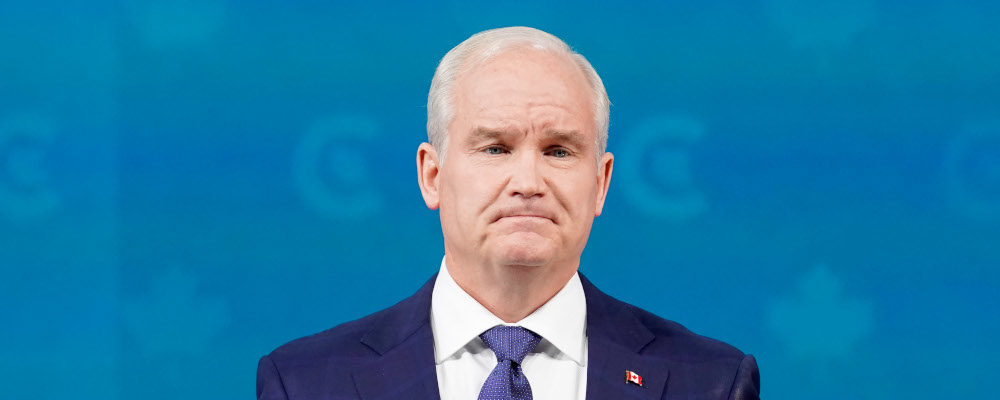Just because something is unpopular, doesn’t make it wrong. Or unwise.
And that is the fundamental problem with the Reform Act, Michael Chong’s wrong and unwise attempt to give individual Members of Parliament more power and leaders of political parties less power.
It does neither of those things. Worse, it fails to understand a core conservative insight.
The Reform Act makes changes to the Canada Elections Act that purports to restrict the ability of leaders of political parties to nominate candidates. It also makes changes to the Parliament of Canada Act that purports to govern the expulsion of caucus members, the election of caucus chairs, a review of a party leader, and the appointment of interim leaders.
I’ll start by saying that political parties and caucuses are two different institutions governed by, in the case of political parties, a party constitution, and in the case of caucuses, self-rule.
The Reform Act doesn’t seem to understand this basic fact. For example, Erin O’Toole is currently the leader of the Conservative caucus in the House of Commons as well as the leader of the Conservative Party of Canada. It is usually the case that these two positions are held by the same person, but that need not be the case.
Christy Clark won a stunning majority government in 2013, but failed to hold her own seat. She remained the leader of the party and became premier even though she was not a member of caucus. In the B.C. Legislature, the recognized leader of the government was Deputy Premier Rich Coleman.
To whom would the Reform Act leadership review refer to in this instance? Or would the vote merely remove the leader of the party in the House, and leave the leader of the party intact? It’s not clear.
But could it be? The act is in direct conflict with all political party constitutions (that I am aware of). Those constitutions establish their own processes for leadership campaigns and reviews. None to date (that I am aware of) have established caucus as a determining body for a leadership review, though they certainly could. Why should this act have precedence over legally constituted and approved party rules? If parties want to have caucuses determine the leader, and a leadership review, they should do that.
Besides, what sense does it make for one body to have the power to depose a permanent leader but not the power to choose a leader?
But, and here’s a little known fact, these provisions are entirely unnecessary, and hence unwise. We don’t need the Reform Act to tell us that when a caucus gets dispirited with a leader, that leader is toast. Just ask Stockwell Day. Or Alison Redford. Or Gordon Campbell.
In the face of this obvious reality, I find it odd that the Reform Act allows a small dissident minority of one-fifth of a caucus to set in motion a destructive review even if 80 percent of a caucus supports the leader. That sounds like disenfranchising the majority of MPs in favour of a maverick few. So much for empowering MPs. This is the kind of thing that happens when you try to write simple rules for complex processes.
The ultimate failure of the act is to think we can always dream up rules when tradition works just fine.
As to the other aspects of the act, the expulsion of members, the election of caucus chairs and the elections of interim leaders, these are things which caucuses should establish for themselves, as self-governing bodies.
Which, oddly, the act actually provides for. After each election each party gets to decide whether to adopt these kinds of rules.
Or not. After the 2019 election both the Liberals and the NPD thumbed their noses at the Reform Act requirement that they conduct these post-election votes. The consequence? Nothing. Those caucuses established their own internal rules governing these things and moved on. The Reform Act quickly became a joke.
Which kind of makes you wonder how binding the votes that follow the act are. If you can ignore the requirement to have votes with impunity, why can’t you ignore the results of any vote with the same impunity?
The Reform Act (if you’ll excuse a walk deep into the weeds) also contains a provision that is so ludicrously silly, it’s amazing it survived the eyes of any reasonable legislative drafter, or lawyer. Here it is, in full: “Any determination of a matter relating to the internal operations of a party by the caucus, a committee of the caucus or the caucus chair is final and not subject to judicial review.”
Am I the only one to find it unfathomable that an act that inserts the state into the private actions of a caucus and a political party includes an explicit provision to tell judges to butt out?
They should both butt out. Because the ultimate failure of the act is to think we can always dream up rules when tradition works just fine. Sometimes muddling through is the right way through.
For here’s a simple, profound and important fact. I’d argue it’s a conservative fact, in fact. When institutions are governed by tradition and experience, you not only shouldn’t, but usually can’t write rules to replace that tradition and experience. Our institutions have spontaneously evolved to where they are and are often governed by unwritten rules – what Friedrich Hayek called tradition. Conservatives above all, should stand athwart attempts to regulate such spontaneous order or tradition and yell stop!
And if you really want to give MPs more power?
How about this: Let’s shut down the Auditor General and the Parliamentary Budget Office and transfer their increasingly bloated budgets and increasingly partisan missions to members of Parliament, collectively or individually. Then let’s review all of the following officers of Parliament with the goal of transferring as much of their work and budgets as possible to members of Parliament: The Commissioner of Official Languages, the Information Commissioner, the Privacy Commissioner, The Conflict of Interest and Ethics Commissioner and The Public Sector Integrity Commissioner.
Then let’s double the pay of MPs, heck maybe triple it. Or maybe let’s tie an MPs salary to the 80th or 90th percentile income level in their ridings.
In short, if you want to give MPs more power, pay them more and give them more to do.
The Reform Act does neither of those things. It is both wrong and unwise.
(Without implication, I thank Howard Anglin for assistance on some of the finer points of law.)




